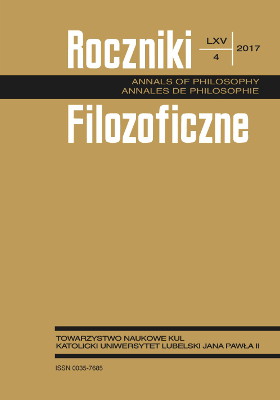Czy wartość życia wzrasta wobec bliskiej śmierci?
Does the Value of Life Increase Near Its End?
Author(s): Włodzimierz GalewiczSubject(s): Social Sciences, Ethics / Practical Philosophy, Sociology, Gerontology
Published by: Towarzystwo Naukowe KUL & Katolicki Uniwersytet Lubelski Jana Pawła II
Keywords: value of life; end-of-life care; healthcare allocation; cost-effectiveness
Summary/Abstract: The costs of life-extending care at the end of life are often disproportionately high in relation to the benefits it brings to the patients. Thus, the unrestricted principle of cost-effectiveness as a rule of rational healthcare allocation would require us to limit publicly funded life-prolonging treatments for patients nearing the end of life. From a societal perspective, however, this limitation would be often callous and inhuman. There are three possible ways to reconcile these two attitudes. First, we could restrict the principle of cost-effectiveness by questioning its validity in the field of end-of-life care. Second, we could raise the acceptable upper cost-effectiveness threshold for end-of-life treatments. Thirdly, it is also possible to maintain that the seemingly rather poor effects of end-of-life treatments are actually much better, because the value of life increases as death draws near. In this paper, I discuss the plausiblity of this last solution.
Journal: Roczniki Filozoficzne
- Issue Year: 65/2017
- Issue No: 4
- Page Range: 5-22
- Page Count: 18
- Language: Polish

